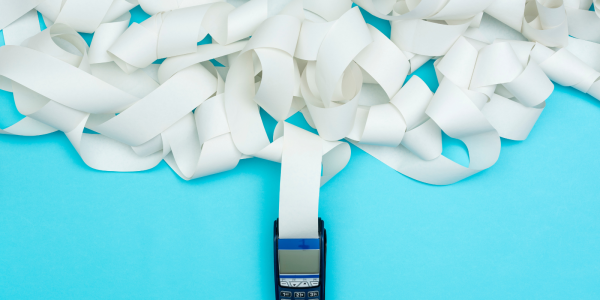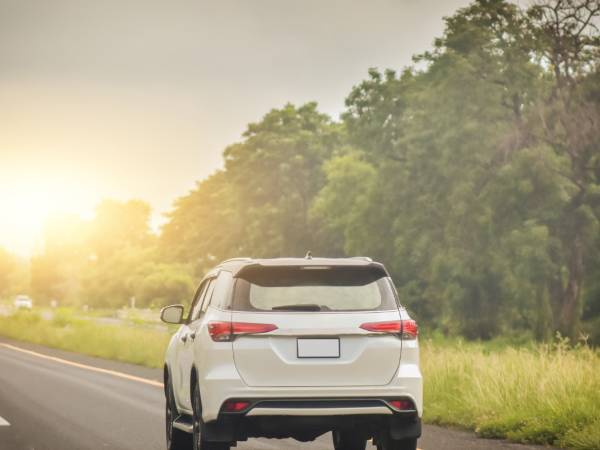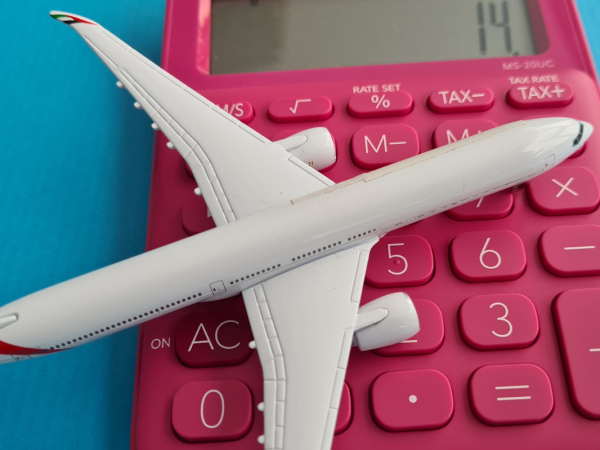Do you travel for work? – find out what tax relief you can get on the cost of your meals
If you are an employee and you have to travel within the UK in relation to your work, you may have to pay for other travel-related expenses too, like meals (subsistence) or overnight accommodation. Your employer may reimburse you for these expenses – in this article we explain the tax and NIC treatment of these payments. If your employer does not reimburse these travel-related business costs fully, you may be able to claim tax relief for them from HMRC. We explain when you might be able to do this.

Content on this page:
Costs related to business travel within the UK – summary of tax and National Insurance treatment
Your employer can pay for subsistence and accommodation costs related to business travel directly. Or, if you pay for them, they can reimburse you on a tax and National Insurance (NIC) free basis – this means you do not pay and tax and NIC on the payments you receive from your employer.
They can reimburse you on the basis of actual costs or, for some elements, use scale rates. Benchmark scale rates are set by HMRC to provide a simplified way for employers to reimburse costs. Some employers may agree specific amounts that they can reimburse with HMRC. These are known as bespoke scale rates.
If your employer does not reimburse your subsistence and accommodation costs either at all or fully, you may be able to claim a deduction from your employment income. This will give you tax relief at your rate of tax, provided you are a taxpayer. The different options can be summarised as follows:
Employer reimburses expenses related to business travel
The table below shows the different methods the employer may use to reimburse employees on a tax and NIC free basis.
| Type of expense | Benchmark scale rates | Bespoke scale rates | Actual costs |
| Meals, drinks and snacks | Yes | Yes | Yes |
| Accommodation | No | Yes | Yes |
| Personal incidental expenses if you have to stay away overnight (private telephone calls, laundry, newspapers) | No | No | Yes (up to £5 per night) |
Employer does not reimburse expenses related to business travel at all or fully
The table below shows the different options available to the employee for claiming tax relief. The employee must take into account any partial reimbursements from their employer when calculating the deduction.
| Type of expense | Benchmark scale rates | Bespoke scale rates | Actual costs |
| Meals, drinks and snacks | No | No | Yes |
| Accommodation | No | No | Yes |
| Personal incidental expenses if you have to stay away overnight (private telephone calls, laundry, newspapers) | No | No | No |
Here we tell you more about all the entries in the tables above. But before we do, we look at what we mean by subsistence and accommodation costs related to business travel.
If your employer does not reimburse you for your business subsistence and accommodation costs, you can only claim tax relief, you cannot claim any NIC relief.
Allowable subsistence and accommodation costs
Where your travel expenses qualify as allowable business travel costs, tax relief also becomes available for your subsistence, and accommodation costs where there is an overnight stay.
Subsistence includes the cost of a meal, the cost of a reasonable level of refreshments (both alcoholic and non-alcoholic) with the meal and refreshments such as tea, coffee or soft drinks taken between meals. It also covers any other necessary costs of travelling, for example parking charges, tolls, ultra low emission zone (ULEZ) or congestion charges.
There is normally no tax relief available for the costs of ordinary commuting, that is, travel between your home and a permanent workplace. So, subsistence and accommodation expenses for ordinary commuting are not eligible for tax relief.
Keep a record of your subsistence and accommodation expenses and the business travel that they relate to. Where possible, keep receipts as proof of payments that you have made.
The basic rules for travel costs
Travel expenses are only allowable for tax purposes if:
- you have to make the journey in the performance of the duties of your employment, or
- you make the journey to or from a place you have to attend in the performance of your duties, including trips from your workplace to another workplace or to visit a customer.
There is more information about business travel on our page Employment expenses: travel. This includes information about permanent and temporary workplaces, working from home, site-based working, and having no usual workplace.
What your employer can reimburse you on a tax and NIC-free basis
Employers do not have to reimburse costs of their employees’ business travel, subsistence or accommodation but many do, either fully or partially. If they do, employers can reimburse such costs on a tax and NIC-free basis. There are different methods employers can use, depending on the type of expense.
Subsistence – meals, drinks and snacks
Your employer can reimburse you for the actual costs you incur on meals, drinks and snacks while you are travelling for business. If this is the case, they are likely to ask you to complete an expenses claim form and provide evidence of the expenses, for example, receipts.
Alternatively, your employer may reimburse you by means of a tax and NIC-free scale rate payment. This is normally a round sum amount, which may be more or less than the actual expenses you have incurred.
HMRC have benchmark scale rates that all employers can use provided some basic conditions are met:
| Length of qualifying journey (hours) | Maximum meal allowance (£) |
| Five or more (but less than 10) |
5 |
| 10 or more (but less than 15) |
10 |
| 15 or more (and ongoing at 8pm) |
25 |
These are the maximum allowable amounts. Some employers will reimburse at lower rates than these. If they do, you are not entitled to a deduction in respect of the shortfall. If you have incurred qualifying expenditure which is higher than the amount reimbursed by the employer, you can claim a deduction from earnings for the unreimbursed part. More on this below.
Other employers will agree bespoke higher rates with HMRC. These are common in certain industries where travel costs are high, and the higher rates are tailored to the specific needs and practices of the employer.
If your employer uses scale rates, they may still ask for receipts from you.
Accommodation
Your employer can reimburse you for the actual costs you incur on overnight accommodation while you are travelling for business. If this is the case, they are likely to ask you to complete an expenses claim form and provide evidence of the expenses, for example, receipts.
Some employers may reimburse you by means of a tax and NIC-free scale rate payment. HMRC do not have a benchmark scale rate for overnight accommodation; your employer is likely to have agreed a bespoke rate with HMRC.
Personal incidental expenses
Your employer can reimburse you for the actual costs you incur on personal incidental expenses, if you have to stay away overnight while travelling on business within the UK. However, they can only reimburse you up to a maximum of £5 per night. If your personal incidental expenses exceed £5 per night, your employer cannot reimburse you for the excess on a tax and NIC-free basis.
Personal incidental expenses include things like tips, private telephone calls, laundry and newspapers – basically small daily expenses that are considered necessary for your comfort and convenience while away from home.
Your employer will probably not need receipts for these expenses – due to their small nature, you may not have receipts.
When you can claim tax relief
You can claim tax relief in respect of your allowable subsistence and accommodation expenses if:
- Your employer does not pay for your subsistence and accommodation costs or
- Your employer does not reimburse you in full for subsistence and accommodation costs that you pay yourself and
- You are a taxpayer
Note that if your employer reimburses your subsistence and accommodation expenses in full, you cannot get any tax relief yourself, because you have not personally incurred any expense.
If your employer does not reimburse you for personal incidental expenses, there is a mismatch in the rules which means you cannot claim any tax relief for your personal incidental costs.
What tax relief you get
If you need to make a claim to HMRC for tax relief on your subsistence and accommodation costs, this is how it works:
- You deduct the amount of your actual subsistence and accommodation costs from your gross employment income (or if you have received partial reimbursement, you deduct the difference between your actual costs and the amount reimbursed).
- This reduces the amount of income on which you pay tax and reduces the amount of tax you have to pay.
- You get tax relief according to the rate at which you pay tax. So, if your subsistence and accommodation costs are £200, and you pay tax at 20%, you get tax relief of £40.
How to claim tax relief on subsistence and accommodation costs
You usually use form P87 to claim a tax refund on employment expenses, including subsistence and accommodation costs related to business travel.
There is more information about how to claim a tax refund on our page PAYE tax refunds.
There is an example of how to complete the form on our page Form P87: tax relief for employment expenses.
More information
You can find more information about employment expenses and their tax treatment on our page Employment expenses.
You can find information on travel expenses, including personal incidental expenses, subsistence and accommodation on our page Employment expenses: travel.
You can find more information about HMRC’s scale rates for subsistence expenses in their employment income manual on GOV.UK.
HMRC’s booklet 480 contains lots of useful information about personal incidental expenses. You can find the booklet on GOV.UK.



